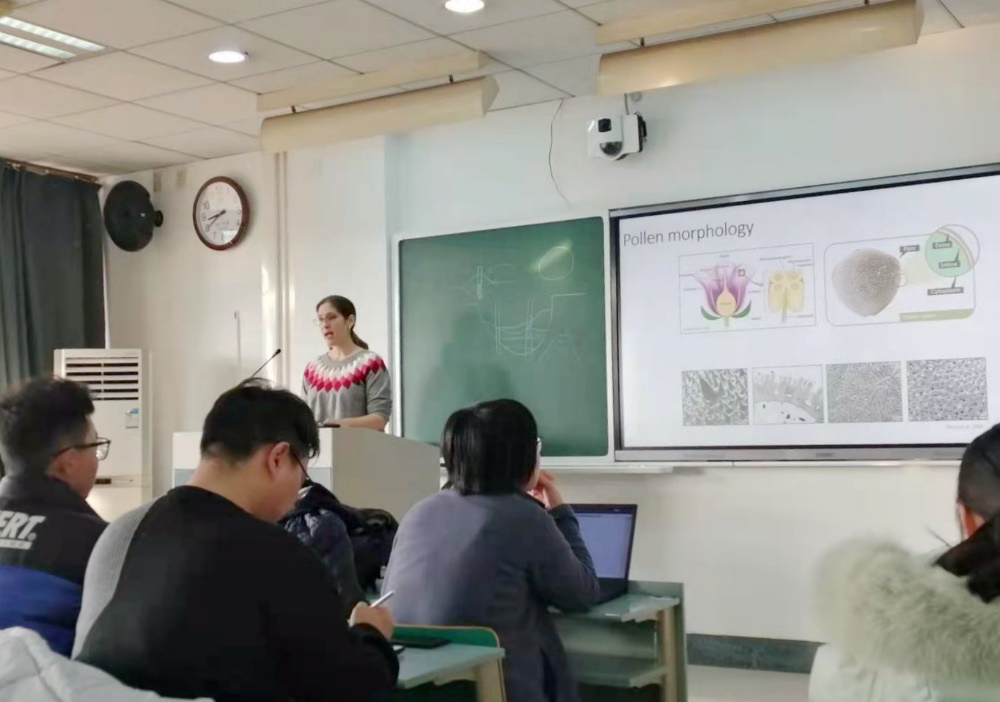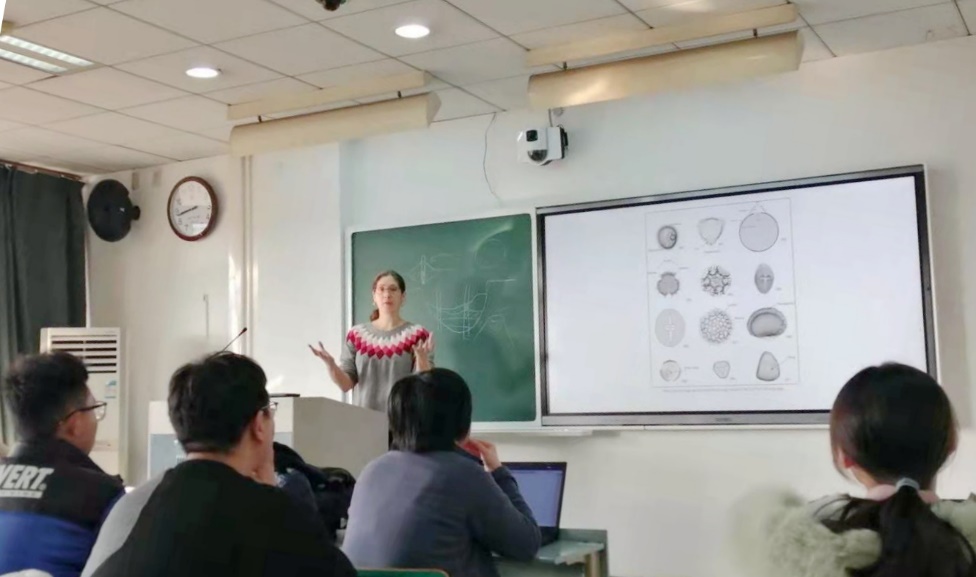Editor: 邵丹蕾 Author: Time: 2021-01-19 Number of visits :316
During the Winter Semester of 2020-2021 Associate Professor Lydia Mackenzie taught a new course titled ‘Biogeography and Palaeoecology’ in the School of Earth Science. Eight students were enrolled across four disciplines: Geology, Human Geography and Urban and Rural Planning, Chemical Engineering and Applied Biological Sciences. Additionally, two students attended the class online from Mexico and Malaysia! Her research in both Australia and China incorporates a range of palaeoecological methodologies to understand past and present species distributions. She believes that understanding past climate and environmental change and the impact of anthropogenic land-use in the Quaternary period is the key to interpreting current and future change at a regional and global scale.

Biogeography is the study of the geographical patterns of species distribution, diversity and abundance across the planet. Palaeoecology uses a range of proxy data to reconstruct past interactions between organisms and their environment and understand climatic and anthropogenic drivers of change. Both biogeography and paleoecology are multidisciplinary fields of research that incorporate geography, climatology, ecology and geology. The course discussed key concepts in biogeography and examined the global distribution of species and the geological drivers of speciation. We also focused on historical biogeography and palaeoecological methods to investigate changes in species distribution and the environment through time. Finally, this course discussed the impact of humans on species distribution and the environment in the past, present, and future.

During the weekly tutorial’s students discussed several ‘hot topics’ including the Anthropocene Epoch, the development of the new discipline of ‘Pyro-geography’, and the impact of human dispersal on global megafaunal extinction in the late Quaternary. The tutorial activities encouraged students to read and critically analyze a range or current scientific literature from top-ranked international journals and discuss methodological approaches and academic writing styles. A key aim of this course was to help students improve their ‘Academic English’ by answering written questions, participating in group discussions, and receiving feedback on their writing style. Additionally, students gave a short presentation to the class on a biological proxy and for their final assessment submitted a Scientific Essay incorporating current literature from the fields of biogeography and palaeoecology. The School of Earth Science welcomes students to participate in the course in the Winter Semester of 2021. Find out more about her research and courses at: https://person.zju.edu.cn/en/lydiamackenzie
